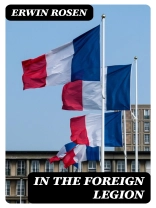Erwin Rosen’s ‘In the Foreign Legion’ is a gripping novel that delves into the complex world of military adventure and personal transformation. Set against the backdrop of the French Foreign Legion, the book explores themes of courage, loyalty, and identity. Rosen’s writing style is characterized by vivid descriptions and a keen eye for detail, creating a realistic and immersive reading experience for the audience. The narrative is fast-paced and engaging, keeping readers on the edge of their seats as they follow the protagonist’s journey through the challenging and dangerous life of a Legionnaire. ‘In the Foreign Legion’ is a testament to Rosen’s skill as a storyteller and his deep understanding of the human experience. It is a must-read for fans of military fiction and those interested in exploring the complexities of the human spirit in extreme circumstances.
Yazar hakkında
Erwin Rosen was an accomplished writer, best known for his insightful work, ‘In the Foreign Legion’ (1910), which provides a riveting account of his experiences and observations within the ranks of the French Foreign Legion. This seminal work offers readers a unique glimpse into life in this legendary military unit, renowned for its rigorous discipline and diverse membership drawn from around the globe. Rosen’s narrative is marked by a candid and engaging style, resonating with authenticity and an unflinching eye for detail; these literary qualities have rendered his work an invaluable resource for both historical scholars and enthusiasts of military literature. The depiction of the inner workings of the Legion, the challenges faced by its soldiers, and the broader implications of its existence within the geopolitics of the era contribute to the book’s enduring significance. Rosen’s adept storytelling brings a deeply human element to the military memoir genre. Whether ‘In the Foreign Legion’ is an account of Rosen’s actual experiences or a work of fiction modeled after real-life events has remained a subject of some debate among literary critics, yet this ambiguity does not diminish the book’s contribution to early 20th-century literature and its window into the storied institution of the French Foreign Legion.












